Diabetes Awareness Week 8 – 14 June: Why Should You Care? Well, in recent decades, the numbers of people with diabetes in the UK has grown exponentially – perhaps you, or someone you know, is struggling with diabetes?
The consequences for individuals can be very serious. The impact on the NHS is overwhelming its ability to cope and our economy is seriously struggling with the downstream cost.
This post brings a fresh lens and real HOPE to the many millions of people who have been diagnosed with diabetes, with pre-diabetes, or are ‘at risk’ of diabetes.
What is diabetes?
As Diabetes.co.uk explains, there are several types of diabetes; the main types are Type 1 diabetes and Type 2 diabetes and they are two totally different conditions. T1 is considered an autoimmune condition whereas T2 can be considered an intolerance to sugar, or insulin resistance.
Type 1 diabetes is characterized by the loss of insulin-producing ‘beta’ cells in the pancreas and has largely been thought to be irreversible. However, newly published research suggests that there might be a cure for type 1 diabetes after all.
Type 2 diabetes is a chronic disease that affects the way the body metabolizes sugar. It is characterized by a progressive loss of sensitivity to insulin, the pancreatic hormone that regulates blood sugar levels. In the early stages of type 2 diabetes, the body produces more insulin to try to overcome reduced insulin sensitivity; however, in the long run, the pancreas can’t produce enough insulin to maintain blood sugar levels, resulting in high blood sugar, or hyperglycemia. Hyperglycemia induces oxidative stress which, in turn, contributes to many of the complications of type 2 diabetes, such as kidney, nerve, retinal, and vascular damage.
– Chris Kresser
Once seen as a life-long sentence for deteriorating health, more recent and emerging science has shown that with the right dietary and lifestyle changes, we can successfully treat, reverse, manage and potentially even cure T1 and T2 diabetes.
How big is the problem?
According to Diabetes UK, there are already nearly five million people in the UK currently living with a diabetes diagnosis. 90% of these have T2.
It is also thought that there may be almost a million more people living with T2 who don’t realise yet as they have not received a formal diagnosis and for millions more, poor diet and unsupportive lifestyles are increasing their risk every day.
Whichever way we cut it, diabetes is on the rise and it’s a serious problem: almost 5.5 million people are expected to be living with the condition by 2025 – that’s almost 10% of the UK population!
Diabetes complications
People with T2 are 50% more likely to die prematurely, most commonly through heart disease. Those with T2 are also two-and-a-half times more likely to experience heart failure and twice as likely to have a heart attack than those without the condition.
“Type 2 diabetes is an urgent public health crisis, and solving it depends on decisive action that’s led by government, supported by industry and delivered across our society.
More than half of all cases of type 2 diabetes − and the accompanying risk of developing devastating complications − could be prevented or delayed by supporting people to make healthier choices. This includes mandating industry to make food and drinks healthier and addressing the marketing and promotion of unhealthy foods.
At the same time, we need to help people understand their personal risk of type 2 diabetes…. Government promised to tackle obesity, and it’s time for them to deliver on this promise and lead the way in affecting real change. Preventing type 2 diabetes, and the development of devastating complications for those living with the condition has to be a public health priority.”
What causes T2 diabetes?
The underlying cause is insulin resistance. When we eat certain foods, particularly refined and processed carbohydrates, that food is converted to sugar inside our body. Our body’s way of dealing with this sugar is to produce the hormone insulin, which transfers the sugar into our cells to use for energy.
Eating too many refined and processed carbohydrates elevates insulin levels for long periods so cells start to become resistant to the effects of insulin – this is known as insulin resistance or insulin insensitivity.
What are the effects of raised insulin levels?
When diabetes is unmanaged, glucose builds up in the blood rather than being distributed to cells or stored and this can wreak havoc with virtually every part of the body.
Complications of diabetes include kidney disease, nerve damage, heart problems, eye problems, and stomach problems; and in women, it can cause the ovaries to produce more testosterone, associated with Polycystic Ovarian Syndrome.
Blood tests can quickly indicate whether your glucose levels are too high or too low.
Is T2 diabetes remission or reversal really possible?
YES! T2 diabetes and pre-diabetes CAN be reversed by addressing the underlying cause – insulin resistance. Treating the blood sugar levels (with medication such as metformin) without addressing the insulin levels is treating the symptoms, not the root cause.
For those with high risk or a diagnosis of T2 diabetes or those with significant abdominal obesity, the immediate priority is to TAKE ACTION to address the dietary and lifestyle factors which contribute to diabetes.
Diabetes Awareness Week – what you can do:
PRIORITY #1: STOP adding fuel to the fire by limiting or avoiding FOODS that increase insulin production:
The first step is to reduce – and even stop – consuming the foods which cause blood sugar and insulin dysregulation: refined and processed carbohydrates, such as pasta, rice, commercially-produced bread; processed and ultra-processed convenience foods and beverages laden with hidden sugars.
While all carbohydrates will increase blood insulin levels, refined, processed and ultra-processed foods containing are the worst offenders since they are ‘acellular‘ carbohydrates. As Chris Kresser explains:
Cellular plant foods have a low carbohydrate density compared to Western foods. Root tubers, fruits, leaves, and stems store their carbohydrates as part of fiber-walled living cells. These cells are thought to remain largely intact during cooking. The fact that carbohydrates are stored within cells means that the maximum carbohydrate density they can have is around 23 percent.
In contrast, flour, sugar, and grains are among the most commonly consumed foods in the Western diet and are considered “acellular” carbohydrates, meaning they lack intact cells.Processed foods made from these ingredients can have a very high carbohydrate density—as high as 75 percent.
AVOID PROCESSED, ULTRA-PROCESSED & PACKAGED FOODS (high calorie, low fibre, low/no nutrients)
AVOID/CUT BACK ON REFINED GRAINS & FLOUR PRODUCTS
- low-fat junk food (highly processed, nutritionally worthless)
- refined carbohydrates (white/beige foods)
AVOID POLYUNSATURATED VEGETABLE OILS (like sunflower, vegetable, rapeseed oils)
COOK WHOLE, SEASONAL UNPROCESSED FOODS – including a wide variety of colourful vegetables FROM SCRATCH
However, at a population level, the formal NHS dietary guidelines are adding fuel to the fire: The ‘Eatwell’ Guide’ encourages meals based on potatoes, bread, rice, pasta or other starchy carbohydrates, despite a plethora of contradictory research clinical evidence and the growing number of leading clinicians who are speaking out to challenge this guidance and demand a change in advice.
The Public Health Collaboration in the UK is on a mission to change national guidance and encourage people to focus on real, whole foods and reduce their refined and processed carbohydrate consumption. Its Ambassadors are now helping thousands of people to improve their health outcomes by making dietary changes.
PRIORITY #2: START putting back the GOOD stuff:
INCREASE intake of healthy, natural fats such as avocados, nuts, and olives
INCREASE consumption of healthy omega3 sources such as salmon, anchovies and other oily fish and include high-quality complete protein with every meal – this has the added benefit of making us feel fuller and less likely to be tempted by dessert!
ALWAYS eat whole, unprocessed cellular carbohydrates and eat them with protein and healthy fats
AVOID all ADDED and processed sugars (such as high-fructose corn syrup), including sweet fizzy drinks – stick to coffee, black, green, herbal or fruit teas, filtered or mineral water
SIT DOWN to eat mindfully at the table, chewing each mouthful food well – this leads to better portion control, improves digestion and allows us to enjoy our food!
NURTURE the gut critters by eating a rainbow – multiple portions of different coloured vegetables every day. The non-digestible fibre in vegetables slow down the release of sugars into the bloodstream and are vital for gut bacteria and when our gut is happy, we will be happy too – the wider the variety of colours, the more phytonutrients we will be getting.
PRIORITY #3: START making LIFESTYLE changes to restore insulin sensitivity:
MANAGE YOUR STRESS – a stressor can be any agent (physical, psychological, emotional or environmental) that provokes a stress response (the sympathetic nervous system’s ‘fight or flight’ response, raising adrenaline and cortisol. Chronic stress, resulting in chronically raised cortisol as an independent risk factor for decreased insulin sensitivity and the development of diabetes has been increasingly recognized.
MOVE YOUR BODY – throughout each and every day: movement and muscle contraction help blood sugar control, especially after meals, making it easier for glucose to enter cells
SLEEP MORE & BETTER – sleep deprivation increases the production of cortisol, which can make cells more resistant to insulin. Lack of sleep also triggers changes to other hormones, including thyroid-stimulating hormone (TSH) and testosterone, which can lead to decreased insulin sensitivity and higher blood glucose. A consistent sleep routine is critical here: leave the phone out of the bedroom and switch off up all screens (blue light) an hour before bed. Consider amber glasses or apps such as Flux which makes the colour of your computer’s display adapt to the time of day.
BUILD SOCIAL CONNECTION – the absence of supportive personal relationships, social isolation, disconnection and loneliness can quickly become chronic stressors – raising cortisol and impacting insulin regulation.
CREATE A SUPPORTIVE HOME ENVIRONMENT – our home should a place that nurtures us emotionally and physically… not a toxic soup of chemically-laden personal, home and garden care products.
Diabetes Awareness Week… and beyond
There’s no doubt diabetes is a serious condition, but by making relatively simple but critically important diet and lifestyle changes it needn’t be a life sentence and WILL yield rapid, effective and long-lasting results.
This excellent podcast from Dr Rupy Ajula (in conversation with fellow Dr Rangan Chatterjee) is well worth listening to help understanding how we can take control of diet and lifestyle and banish or reduce our risk for T2 diabetes.
THE REAL FOOD SOLUTION SUPPORTS THE REAL FOOD CAMPAIGN UK
With our growing understanding of the role our food plays in EVERY aspect of our health, it’s not difficult to see that what we eat and the way we produce and consume our food has never been more important for our health; and, because all life is inextricably connected, for our planet.
The Real Food Solution will help you to discover the power of real food as medicine for better health – for you and for our planet and it’s dedicated o the work of The Real Food Campaign UK.
So ditch the junk, cook from scratch and rediscover forgotten wisdom, recipes and techniques for better energy, vitality and health. Let The Real Food Solution be your guiding light and real food go-to reference guide to putting health back onto your table.
Order a copy today
Izabella Natrins is a nutrition and lifestyle expert with over 30 years’ experience in the health space. A former research psychologist, she is a qualified real food nutrition and lifestyle medicine health practitioner and coach, a Ballymaloe trained, nutritional chef, an educator, speaker and the founder of the health and wellness website IzabellaNatrins.Com. Izabella is also a Public Health Collaboration Ambassador and is a
Board of the Fordhall Community Land Initiative at Fordhall Organic Farm.
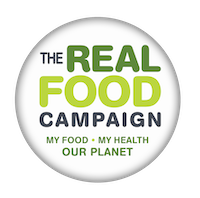
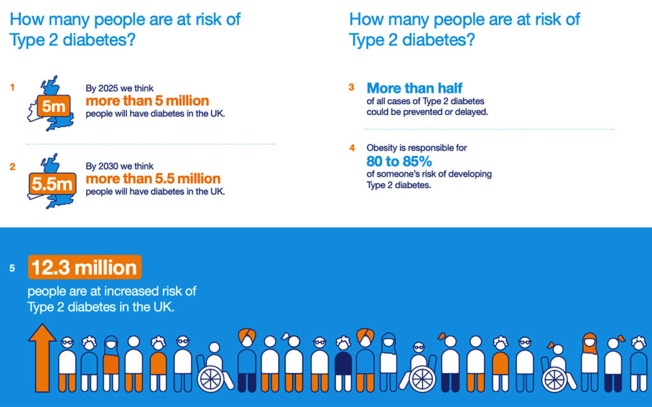
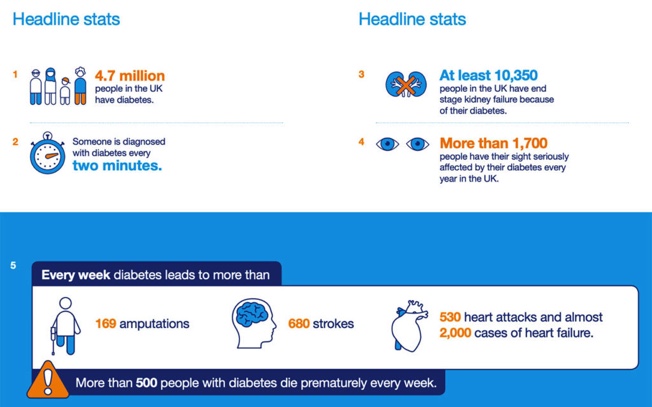
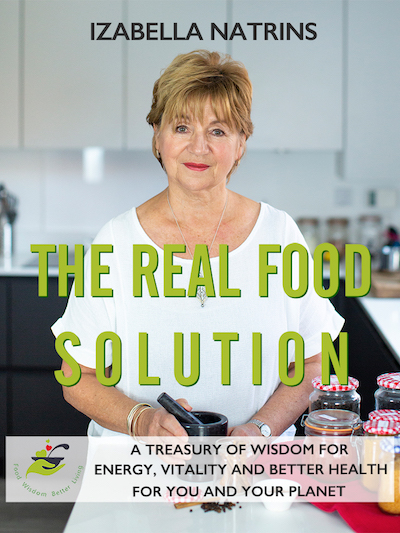
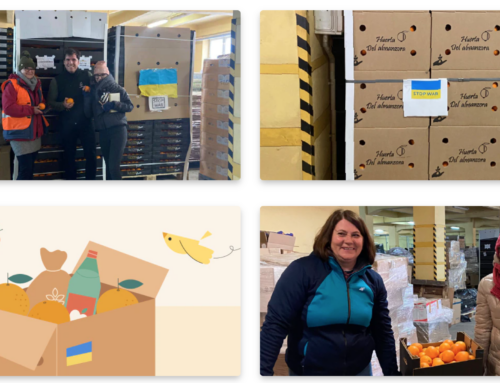
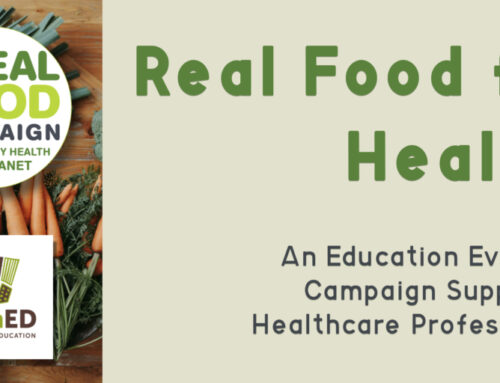


This article beautifully highlights how real food and conscious lifestyle choices can be powerful in the fight against diabetes. For additional perspective on treatment options, here’s a helpful link: https://www.shemed.co.uk/blog/how-semaglutide-works-for-diabetes